Parent Academy | Effective Communication with Adolescents
Why does your child tend to hide their true self from you when growing up?
Why are they becoming annoyed when you show concern?
Why do they prefer to use Wechat emoji stickers as a reply to you, or avoid face-to-face conversation?
The way of communication between high school students and parents may have changed when the children are in their adolescence. Most of them are about to study abroad by themselves. How could parents maintain positive and effective engagement with them?
A Parent Academy with the topic of Effective Communications with Adolescents was organised at Dulwich Zhuhai by our Social, Emotional, and Mental Health Counsellor, Ms Mia Wang.
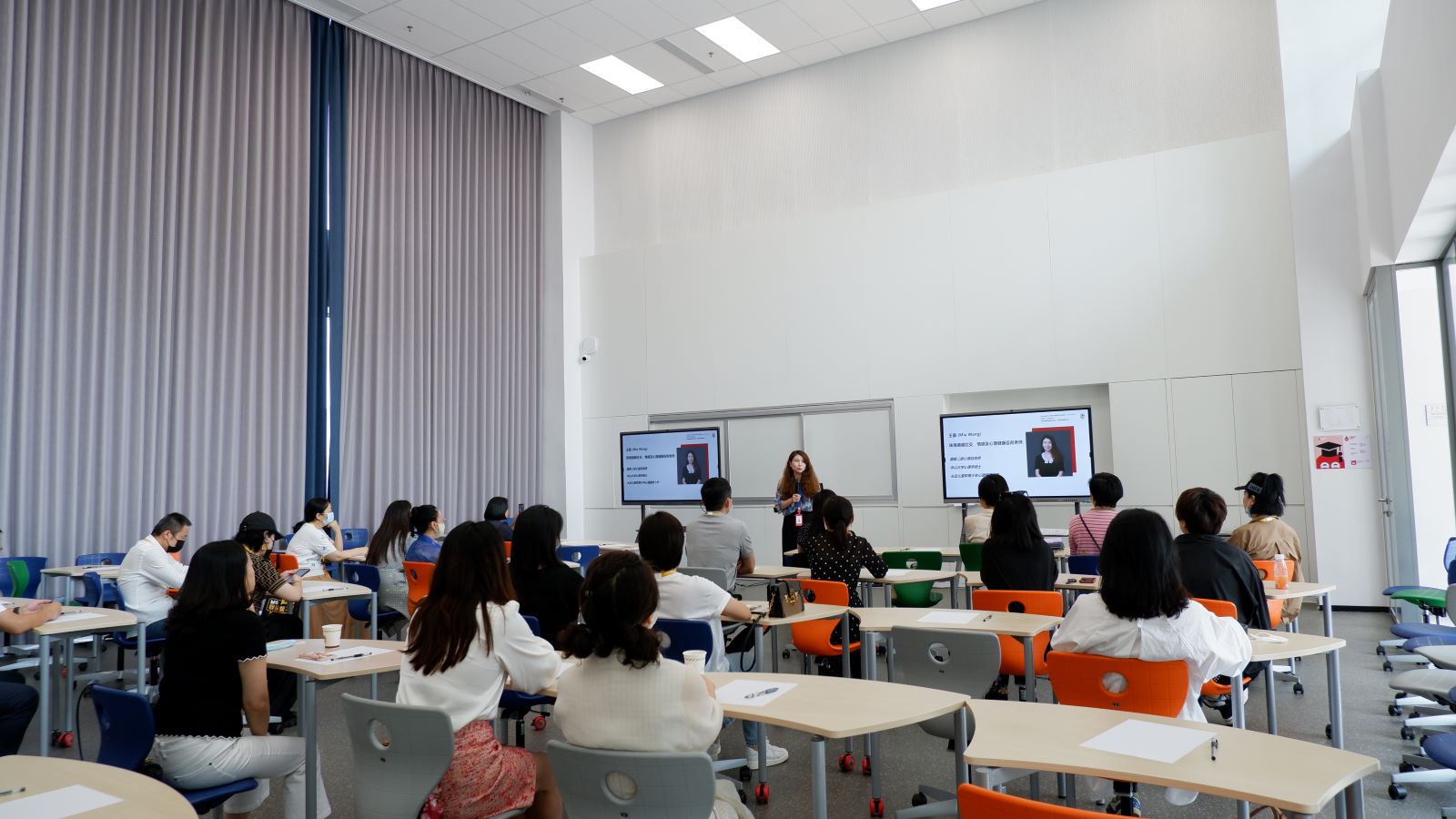
A series of engaging activities and discussions were conducted to help parents understanding the specific characteristics of their children as teenagers, including drawing family relationship charts, learning the key developmental stages of a high school student, the Family System and the Family Cycle concepts. Practical advice regarding daily conversation and interaction was also shared to inspire parents to support their children effectively and efficiently in a timely manner.
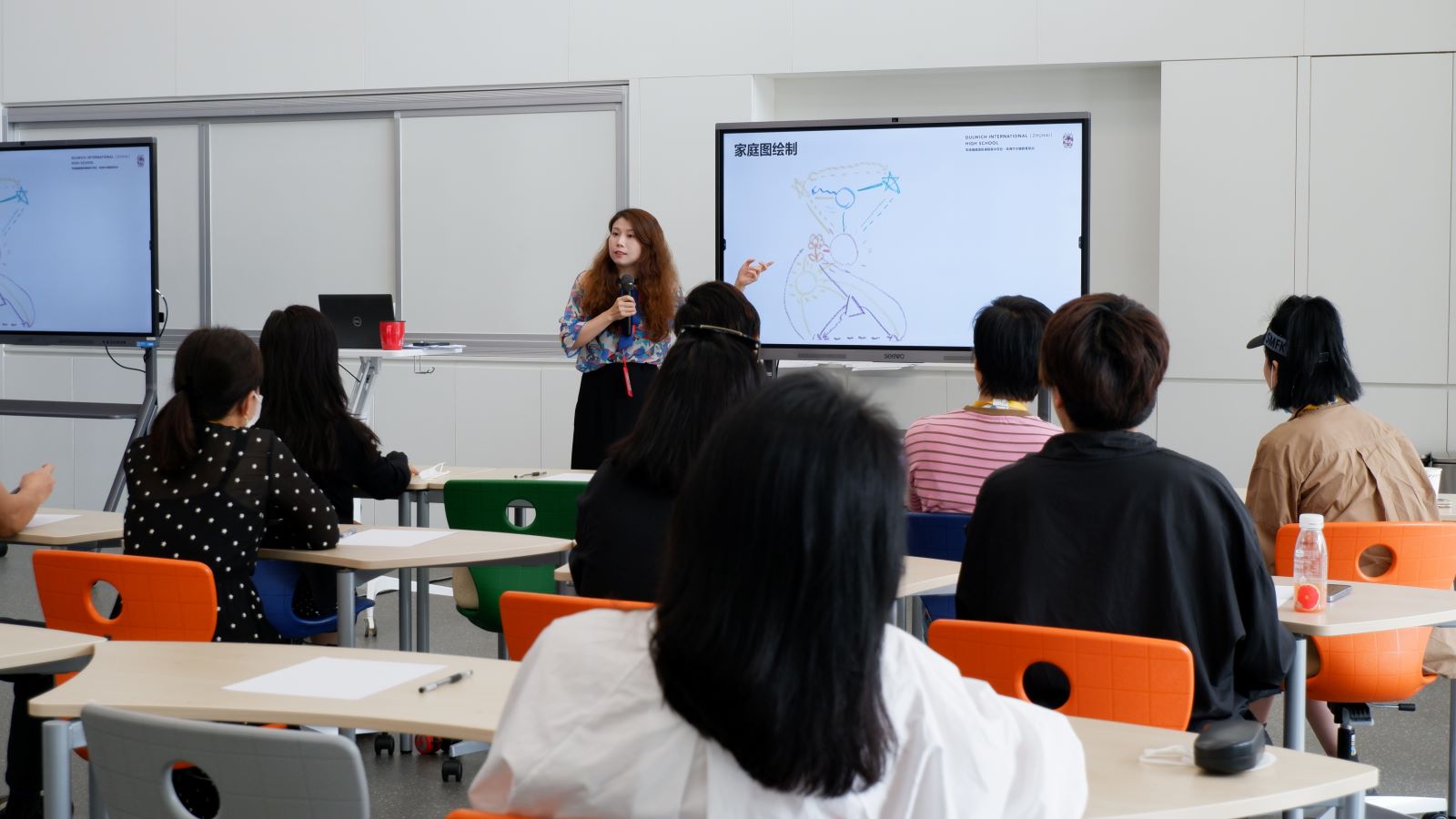
Let us review the highlights in a glance.
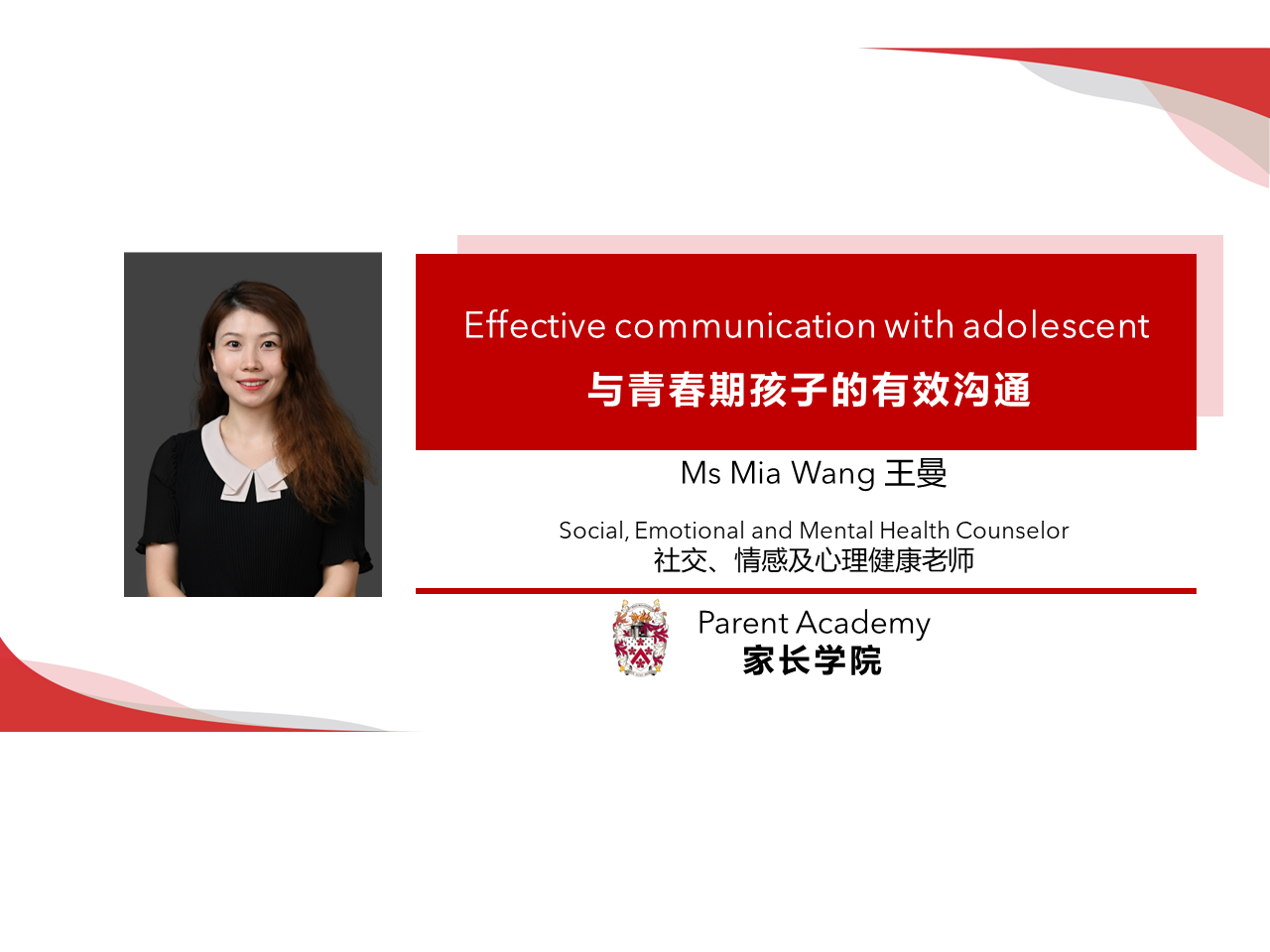
The development stage of adolescence
Adolescence is a transition period from a child to an adult, covering physiological and psychological development, as well as other perspectives.
At the physiological level
Significant changes in their body will take place during growth spurts caused by pubertal hormones. However, the development of the brain may not be able to fully keep up with the body growth.
Adolescents are prone to emotional impulsiveness, weak in making rational decisions, unable to focus on long-term goals, and become obsessed with new things easily, which are all related to the immature development of PFC.
The development of the Prefrontal Cortex (PFC) affects the "top-down" implementation of various cognitive processes, including decision-making and goal-oriented behavior, attention, cognitive flexibility and working memory, as well as emotional management. Its development will continue throughout the adolescence stage, till the early adulthood.

At the psychological level
There are eight key psychosocial development stages in a person’s life, according to the American psychoanalyst Erik Erikson’s theory. In each stage, one would have a specific psychological struggle, which may serve as a turning point in this period of development.
The most important one at the adolescent stage is to form self-identity.
For the first time, teenagers at this stage will consciously find the answer to the question "Who am I?" They will confirm themselves, think about and choose some important aspects of self-development, such as their future career, their values, the outlook on life etc.
If the transition goes well, teenagers will form a complete and unified personality framework, as well as a sense of self-identity. They will accept and appreciate themselves. On the contrary, they will fall into the role confusion, being unsure of who they are, cannot understand themselves clearly and correctly, or feel disappointed and confused about their uncertain role.
You may find that adolescents pay more attention to their looks and appearance, focusing much on looking at themselves in the mirror or learning about the comments from others. In many cases, this is the self-consciousness playing its part. Parents and teachers should communicate appropriately with a mutual understanding and make suggestions, when too much attention is paid to outfits, or to the comparison with their peers in looks and appearance.
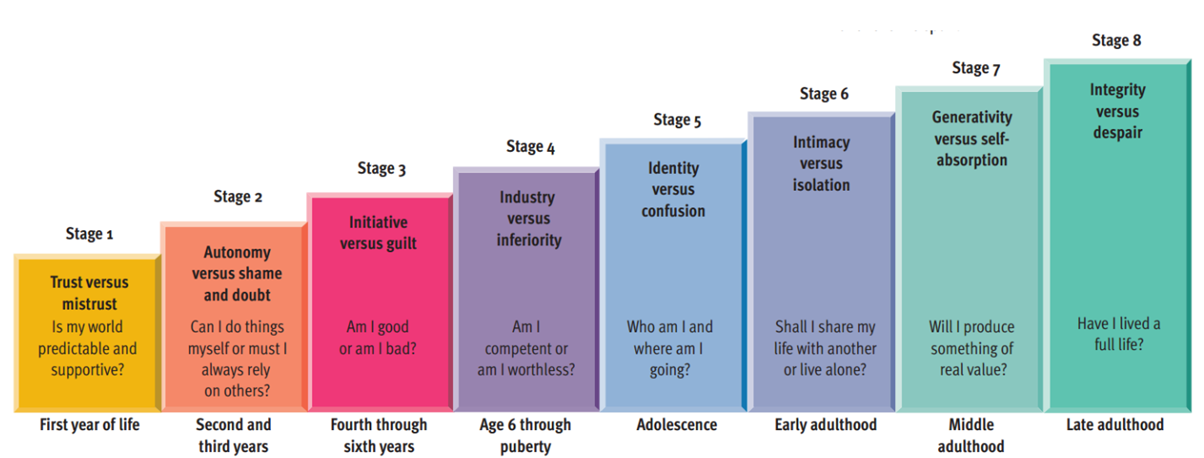
The Family System
Similar as the concept of different life stages that people will experience when growing up and growing older, there are different development stages of a family unit over time as well.
Adolescents are about to face an important family cycle stage – becoming an adult, departing home.
Whether it is about personal development, new skills acquisition, or making new friends, they are preparing for being independent. At the same time, their self-cognition is still vague. Sometimes they may be very motivated, confident and brave to explore the world, while sometimes they may feel vulnerable, preferring to stay at home and be with their parents. Such conflicts and contradictions may upset them.
Therefore, the rebellions shown by adolescents are not only against parents, but also against themselves for not being independent, whom they have doubts in. The hidden voice in their hearts for most of the rebellious acts is actually a voice crying for help.
Your child needs you more than they seem to be, neither can they realise.
In addition, there is a pair of basic contradictions lying in the family unit - belonging and autonomy.
The sense of family belonging is aroused by the deep emotional connection with our family members. On the other hand, everyone requires independence and freedom. Therefore, it is important that family members support each other and draw certain boundaries at the same time, otherwise the contradiction will evolve into a conflict with both love and hatred.
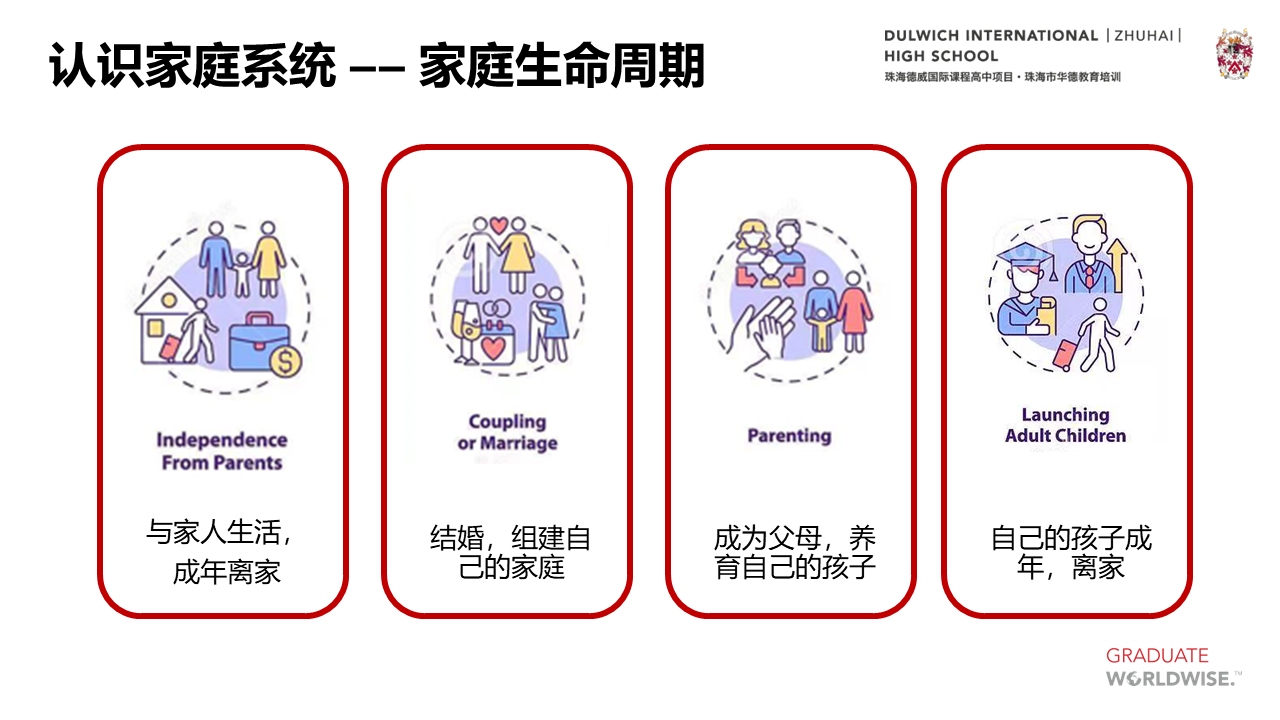
Misunderstandings in communication—"Concern will cause confusion”
Most parents are new as a parent, devoting themselves fully on their children.
We care, so we will worry. Sometimes it may even lead to fear.
What are we worried about? We worry about our children's present status. We worry about their future.
In this rapidly changing world, children and parents may never be well settled down to the most up-to-date situation.
"I'm doing it for your sake."
This simple line expresses the parents' motive of love. However, it does not mean that what children perceive is love.
Parents unconsciously release their control power while presenting and adding in all kinds of "love conditions" to their children. When their efforts are not rewarded as expected, angriness may arise out of worry and fear.
What do our children really want? They want to be recognised - "I am seen", "I am valuable", "I am important".
Effective communications with adolescent
Based on the above brief introduction and analysis, here is some advice we would like to share with you.
1. Take control of your own emotions
Many parents find it exhausted to balance career and family well. Sometimes a small incident may trigger huge mood swings from parents to their children.
Emotions are contagious.
Effective communications should ride on stable emotions. Try not to turn the conversation with children to a trigger point of emotional collapse with all your individual unhappiness.
2. Redefine the boundaries
Teenagers have a much stronger sense of boundary. They will especially care about doors, locks and other objects that symbolise boundary, as well as actions or status such as locking mobile screen or being confidential.
Like adults, they have their own secrets, opinions, and emotions. They take their privacy seriously.
Drawing the boundary with children does not mean that we keep ourselves from them. It indicates that we need to learn to ask for permission first and respect the children's right to say no.
3. Respect their feelings — empathy, understanding and response
The communication between parents and children may turn into giving lessons in a lot of cases. This may be caused by the parents’ intention to being protective and supportive by offering advice and guidance from their own experience. However, in their adolescence, children expect equality, instead of being dominated by parents.
It is important that parents are willing to listen to their children under whatever emotions the children have at the moment. It is about listening to them without subjective comments or judgements. This is understanding.
Use "we can" instead of "you should" for dialogue. This is empathy.

Both physical and mental health of a student are inextricably bound with the development of individual characters, the acquisition of knowledge and skills, and the development of their own advantages. At Dulwich Zhuhai, we work closely with our parent community to offer adequate pastoral and well-being support for our students’ holistic development. We share mutual care and concerns, as well as practical suggestion to parents by conducting various formats of communications and activities, such as Parent Academy, Parent Workshop, and the regular engagement with the " Friends of Dulwich" (FOD) parent association.
Reference:
- McGoldrick, M., & Carter, E. A. (1982). The family life cycle. In F. Walsh (Ed.), Normal family processes (pp. 167–195). New York: The Guilford Press.
- Schalbetter, S. M., von Arx, A. S., Cruz-Ochoa, N., Dawson, K., Ivanov, A., Mueller, F. S., & Meyer, U. (2022). Adolescence is a sensitive period for prefrontal microglia to act on cognitive development. Science advances, 8(9), eabi6672.
- The Grown-Up's Guide to Teenage Humans, Josh Shipp
- The Awakened Family, Shefali Tsabary
- Positive Discipline, Jane Nelsen
- How to Talk So Kids Will Listen & Listen So Kids Will Talk, Adele Faber; Elaine Mazlish
- Why Won't My Teenager talk to me, John Coleman





